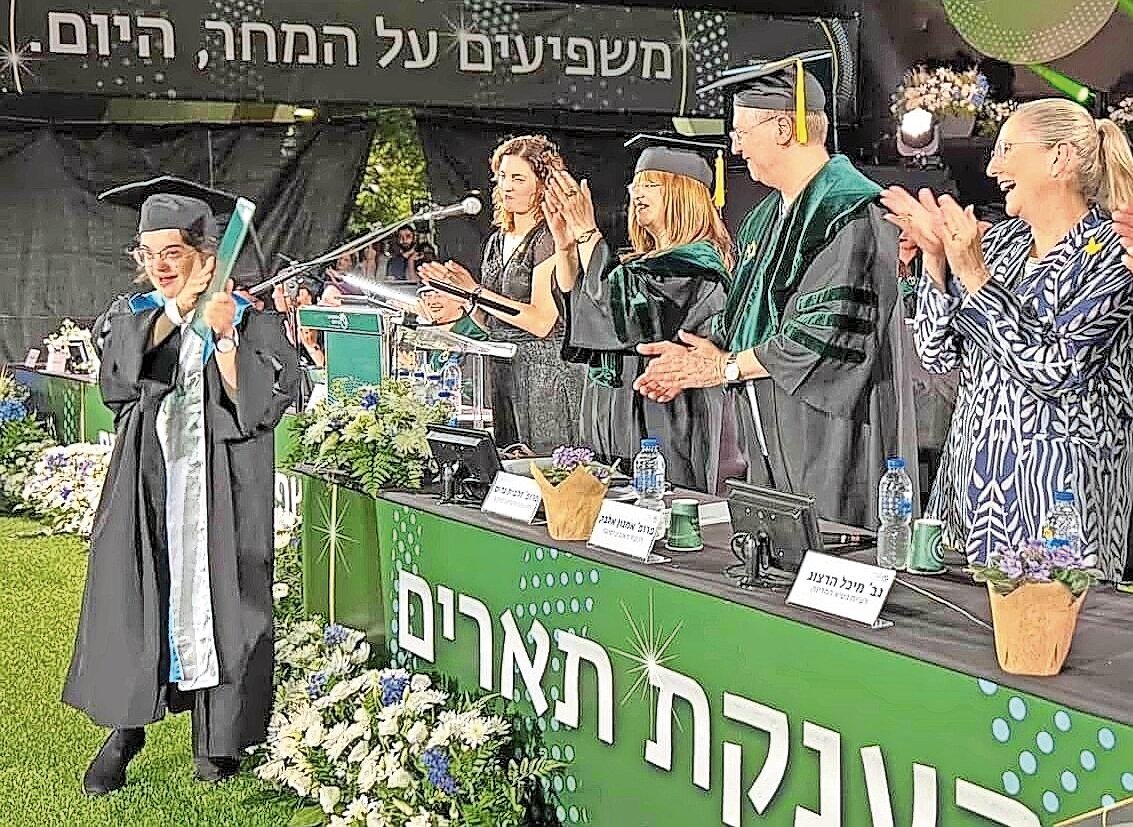6 earn BAs at Bar-Ilan despite intellectual disabilities, 1st in Israel
Six students made history last week by becoming the first-ever Israeli cohort with intellectual disabilities to earn bachelor’s degrees.
The graduates — Ruti Bar-Or, 46, from Jerusalem; Tomer Gad-Barak, 35, from Petach Tikvah; Hofit Gilad, 41, from Ramat Gan; Henia Greengarten, 42, from Kfar Saba; Oded Naftali, 34, from Rishon Letzion; and Lior Shmualevitz, 35, from Hod Hasharon, had enrolled in the Empowerment Project at Bar-Ilan University’s Faculty of Education.
They all received diplomas for Multidisciplinary BAs in Social Sciences at the Faculty of Education’s graduation ceremony at the university’s campus in Ramat Gan.
“My message is: ‘All shy people can learn’,” said Naftali, who has Down Syndrome. “This project allowed me to overcome my timidity and gain confidence. I managed to learn better. During exams, I would use elimination to find out the right answers.”
Israel’s first lady Michal Herzog attended the graduation to recognize six exemplary people with cognitive versatility who are full of courage, determination and a great soul.”
The Empowerment Project, established by Professor Hefziba Lifshitz, is based on her Compensation Age Theory, which argues that chronological age, as opposed to mental age, plays an important role in determining the cognitive ability of adults with intellectual disability.
“We identified uniquely high capabilities in these six students, linguistically and in terms of comprehension and memory,” Lifshitz said. “Our students started by attending two courses and it became clear that their experience in life, their maturity, and their experience with education and welfare systems was an asset.
“For every academic hour they spent learning in class they received one-and-a-half hours of assisted learning so that they would be ready for the next class,” she added.
“We took academic material that students at university learn in psychology and sociology and had to make it accessible to them and their unique capabilities,” explained Dr. Shoshana Nissim, director of the Empowerment Project. “The students succeeded in using all of their productive capabilities to get to access all of their greatest potential.”
“We used to have them study until age 21 and send them to work. Suddenly there is a new possibility for them to learn like every student in university,” Nissim added.






